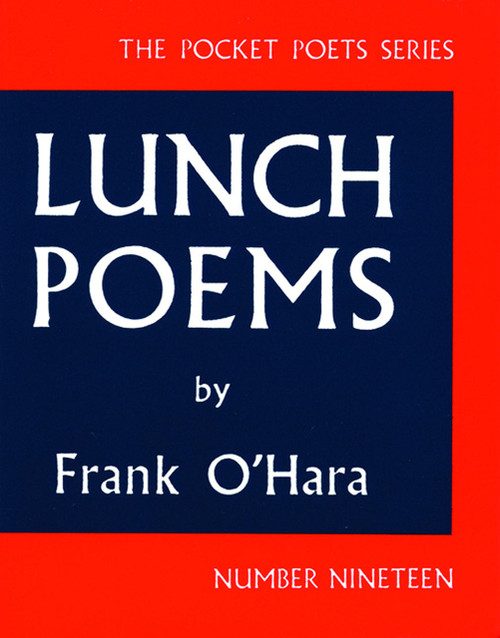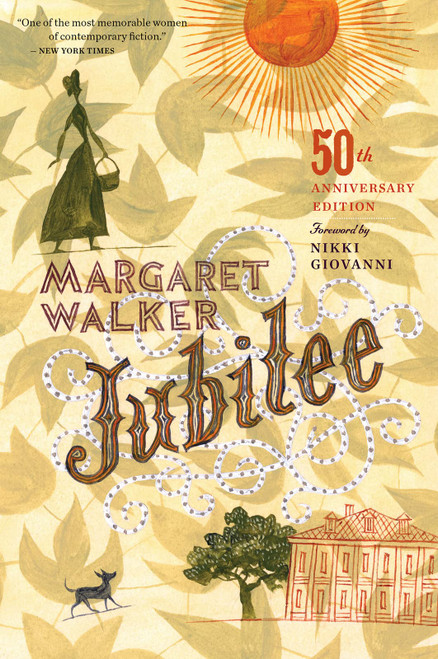Celebrate the 50th Anniversary of Frank O'Hara's Lunch Poems
Lunch Poems, first published in 1964 by City Lights Books as number nineteen in the Pocket Poets series, is widely considered to be Frank O'Hara's freshest and most accomplished collection of poetry. Edited by the poet in collaboration with Lawrence Ferlinghetti and Donald Allen, who had published O'Haras poems in his monumental The New American Poetry in 1960, it contains some of the poets best known works including The Day Lady Died, Ave Maria, and Poem [Lana Turner has collapsed!].
This new limited 50th anniversary edition contains a preface by John Ashbery and an editors note by City Lights publisher Lawrence Ferlinghetti, along with facsimile reproductions of a selection of previously unpublished correspondence between Ferlinghetti and OHara that shed new light on the preparation of Lunch.
Frank O'Hara's Lunch Poems, the little black dress of American poetry books, redolent of cocktails and cigarettes and theater tickets and phonograph records, turns 50 this year. It seems barely to have aged . . . This is a book worth imbibing again, especially if you live in Manhattan, but really if you're awake and curious anywhere. OHara speaks directly across the decades to our hopes and fears and especially our delights; his lines are as intimate as a telephone call. Few books of his era show less age. --Dwight Garner, The New York Times
City Lights' new reissue of the slim volume includes a clutch of correspondence between O'Hara and Lawrence Ferlinghetti . . . in which the two poets hash out the details of the book's publication: which poems to consider, their order, the dedication, and even the title. 'Do you still like the title Lunch Poems?' OHara asks Ferlinghetti. 'I wonder if it doesn't sound too much like an echo of Reality Sandwiches or Meat Science Essays.' 'What the hell,' Ferlinghetti replies, 'so well have to change the name of City Lights to Lunch Counter Press.' --Nicole Rudick, The Paris Review
Frank OHara's famed collection was first published in 1964, and, to mark the fiftieth anniversary, City Lights is printing a special edition. --The New Yorker
The volume has never gone out of print, in part because OHara expresses himself in the same way modern Americans do: Like many of us, he tries to overcome the absurdity and loneliness of modern life by addressing an audience of anonymous others. --Micah Mattix, The Atlantic
I hope that everyone will delight in the new edition of Frank's LUNCH POEMS. The correspondence between Lawrence and Frank is great. Frank was just 33 when he wrote to Lawrence in 1959 and 38 when LUNCH POEMS was published! The fact that City Lights kept Frank's LUNCH POEMS in print all these years has been extraordinary, wonderful and a constant comfort. Hurray for independent publishers and independent bookstores. Many thanks always to Lawrence Ferlinghetti and everyone at City Lights. --Maureen OHara, sister of Frank O'Hara
Frank O'Hara's Lunch Poems--which has just been reissued in a 50th anniversary hardcover edition--recalls a world of pop art, political and cultural upheaval and (in its own way) a surprising innocence. --David Ulin, Los Angeles Times
Lunch Poems, first published in 1964 by City Lights Books as number nineteen in the Pocket Poets series, is widely considered to be Frank O'Hara's freshest and most accomplished collection of poetry. Edited by the poet in collaboration with Lawrence Ferlinghetti and Donald Allen, who had published O'Haras poems in his monumental The New American Poetry in 1960, it contains some of the poets best known works including The Day Lady Died, Ave Maria, and Poem [Lana Turner has collapsed!].
This new limited 50th anniversary edition contains a preface by John Ashbery and an editors note by City Lights publisher Lawrence Ferlinghetti, along with facsimile reproductions of a selection of previously unpublished correspondence between Ferlinghetti and OHara that shed new light on the preparation of Lunch.
Frank O'Hara's Lunch Poems, the little black dress of American poetry books, redolent of cocktails and cigarettes and theater tickets and phonograph records, turns 50 this year. It seems barely to have aged . . . This is a book worth imbibing again, especially if you live in Manhattan, but really if you're awake and curious anywhere. OHara speaks directly across the decades to our hopes and fears and especially our delights; his lines are as intimate as a telephone call. Few books of his era show less age. --Dwight Garner, The New York Times
City Lights' new reissue of the slim volume includes a clutch of correspondence between O'Hara and Lawrence Ferlinghetti . . . in which the two poets hash out the details of the book's publication: which poems to consider, their order, the dedication, and even the title. 'Do you still like the title Lunch Poems?' OHara asks Ferlinghetti. 'I wonder if it doesn't sound too much like an echo of Reality Sandwiches or Meat Science Essays.' 'What the hell,' Ferlinghetti replies, 'so well have to change the name of City Lights to Lunch Counter Press.' --Nicole Rudick, The Paris Review
Frank OHara's famed collection was first published in 1964, and, to mark the fiftieth anniversary, City Lights is printing a special edition. --The New Yorker
The volume has never gone out of print, in part because OHara expresses himself in the same way modern Americans do: Like many of us, he tries to overcome the absurdity and loneliness of modern life by addressing an audience of anonymous others. --Micah Mattix, The Atlantic
I hope that everyone will delight in the new edition of Frank's LUNCH POEMS. The correspondence between Lawrence and Frank is great. Frank was just 33 when he wrote to Lawrence in 1959 and 38 when LUNCH POEMS was published! The fact that City Lights kept Frank's LUNCH POEMS in print all these years has been extraordinary, wonderful and a constant comfort. Hurray for independent publishers and independent bookstores. Many thanks always to Lawrence Ferlinghetti and everyone at City Lights. --Maureen OHara, sister of Frank O'Hara
Frank O'Hara's Lunch Poems--which has just been reissued in a 50th anniversary hardcover edition--recalls a world of pop art, political and cultural upheaval and (in its own way) a surprising innocence. --David Ulin, Los Angeles Times













